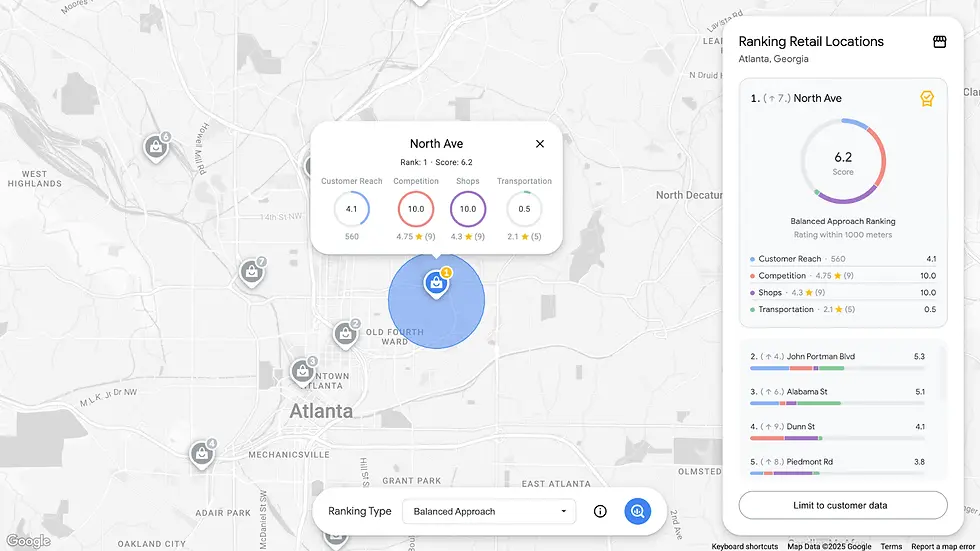Breaking Down the Different Places APIs and Their Applications
- 28East

- Oct 15
- 3 min read
Whether you're building a store locator, streamlining deliveries, or helping users find local services, location matters, and Google’s Places APIs offer powerful tools to bring this functionality to life. That’s why it’s crucial to choose and implement them correctly.
In this blog, we break down the key differences between the Places API, Geocoding API, and Distance Matrix API, highlight common mistakes, and show how 28East helps African businesses get the most value without the risk.
The Places API: Rich Location Detail and Discovery
The Google Maps Places API is designed to help users discover and evaluate real-world locations. Whether it’s a restaurant, store, or service provider, the API provides detailed, real-time information such as opening hours, ratings, and contact details.
It also powers features like:
Autocomplete.
Place details.
Nearby search.
When your app needs to answer questions like “Is this place worth visiting?” or “What is there,” the Places API is the ideal choice.
The Geocoding API: Pinpointing Locations
The Geocoding API is Google’s tool for translating between street addresses and geographic coordinates.
It’s an efficient service that’s perfect for when you simply need to find where something is on a map without the added cost of extra details.
Use the Geocoding API when your goal is clarity instead of discovery, including:
Converting customer-entered addresses into map pins.
Validating or cleaning address data.
Translating GPS coordinates.
Powering backend logistics or delivery systems.
The Distance Matrix API: Smarter Logistics and Planning
This Distance Matrix API helps businesses calculate travel times and distances between locations, factoring in real-time traffic conditions. It’s best used when your app or system needs to answer questions like:
“Which driver can get there the fastest?”
“What’s the best route for this delivery schedule?”
“How far is this store from the customer?”
This includes use cases like:
Delivery and route planning.
Fleet and driver dispatch.
Store or service centre matching.
Travel time estimates during checkout or booking flows.
For logistics-heavy operations, this API enables smarter decision-making and better customer experiences, streamlining your processes.
Common Mistakes When Implementing Places APIs
The most common and costly mistake businesses make when implementing APIs is failing to properly secure their API keys.
An unsecured AP key is publicly visible in your website or app’s code, making it easy for anyone to copy and use. This causes two major problems:
Uncontrolled costs
Malicious users or bots can use your key in their own high-traffic apps, quickly racking up usage and inflating your bill.
Many businesses only realise the issue when they receive a massive invoice, often for thousands of rands.
Service outages
When an API key is abused, it can exceed daily quota limits. This means Google starts rejecting legitimate requests from your site or app, leading to broken maps, failed address lookups, and frustrated users.
How 28East Helps You Choose and Implement the Right API
As a premier Google Maps Platform Partner in South Africa, 28East can help customers properly secure their API keys through expert guidance, direct technical support, and account management.
For businesses that manage their own projects, we offer expert advice on implementing security measures. Here’s how our support services include guiding customers through:
Using best practices for securing API keys: We will review your use case and advise on the most effective restrictions.
Setting up application restrictions: We will help our clients determine whether they need to restrict their key by HTTP referrer (for websites), IP address (for servers), or by app signature (for Android and iOS apps) to ensure it only works where intended.
Applying API restrictions: We will help our clients limit the key to only the specific APIs they need (e.g., Places API, Geocoding API), which prevents it from being used for other, potentially more expensive, services if the API key is ever compromised.
Stay Ahead with 28East as Your Google Maps Partner
Choosing the right Google Maps API and implementing it securely can make or break your location-based services. From reducing costs to improving user experience, every detail matters.
As a trusted Google Maps Platform Partner based in South Africa, 28East helps you get it right from day one. Get in touch to learn how we can help you stay ahead!




Comments